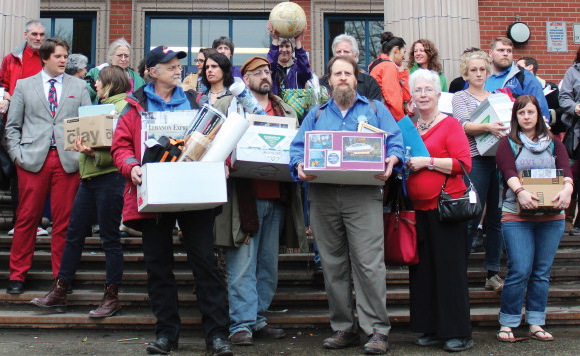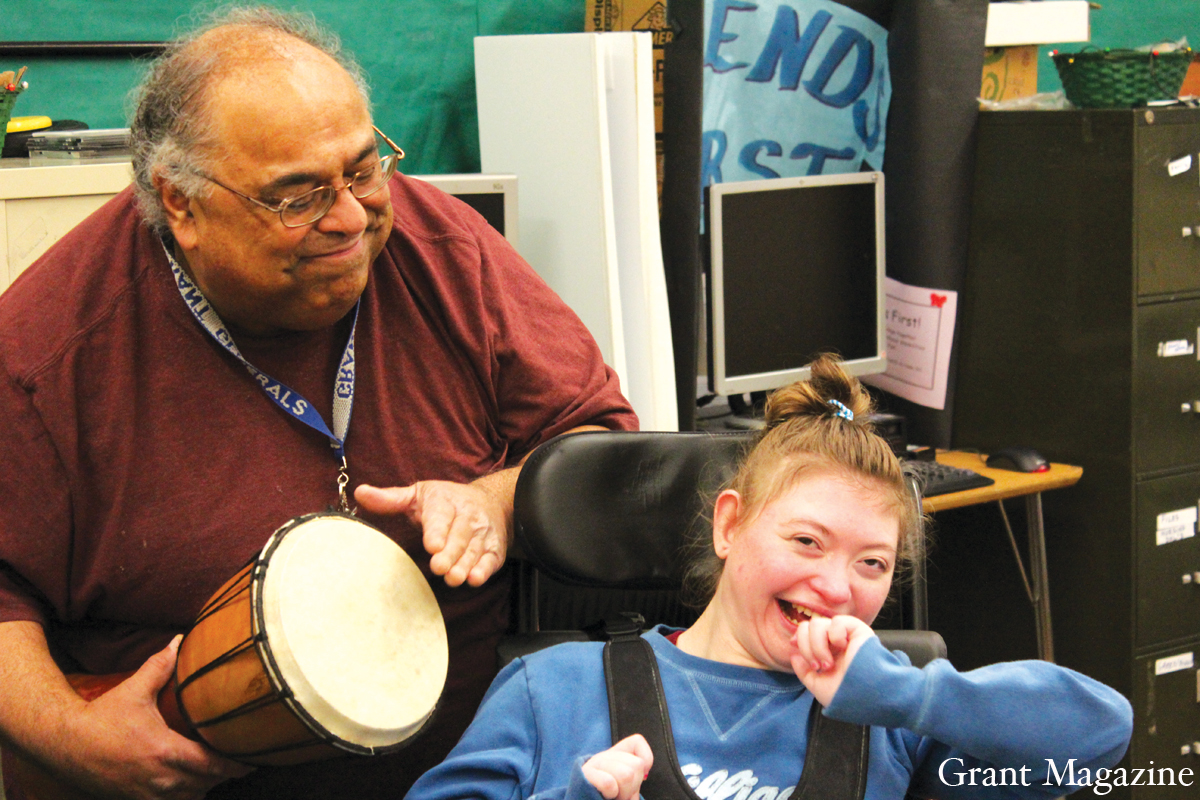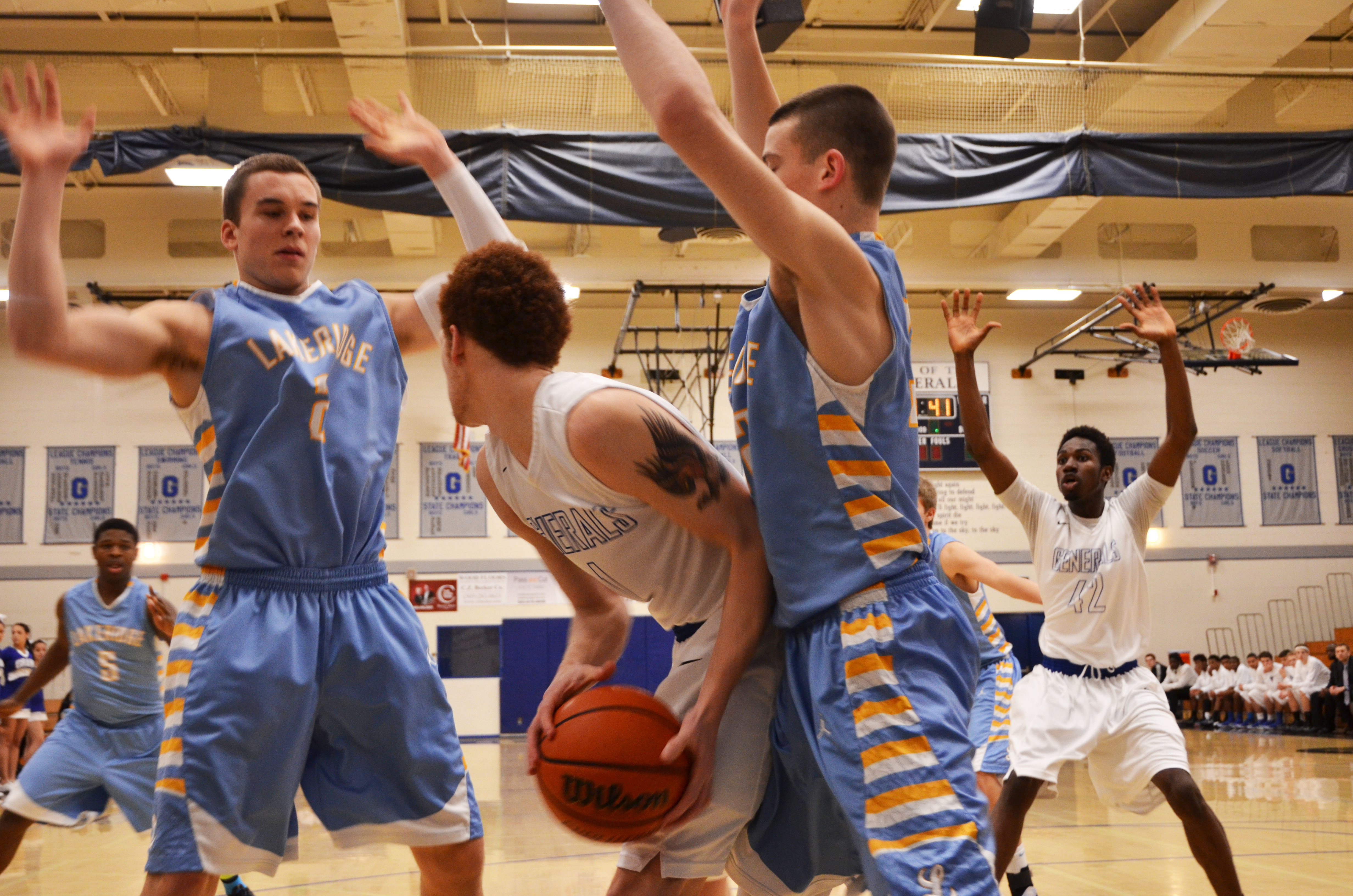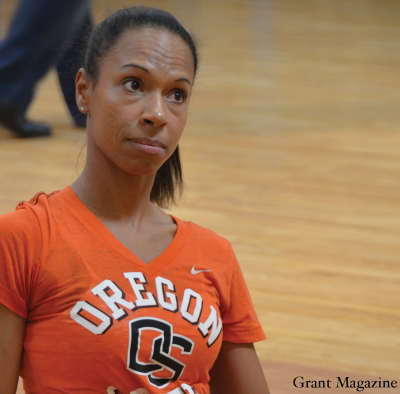
Back when Keri Pilgrim was just a child in San Jose, Calif., she found a stray parakeet at a public park near her house. She corralled it with a butterfly net.
She brought the bird home and her parents let her keep it. But Pilgrim didn’t just want to keep it as a pet. She wanted to tame it. She went to the library, reading extensively on how to tame the bird. She bought gardening gloves to cradle it gently in her hands for hours at a time, day after day.
But it didn’t work. Pilgrim went to the pet store and asked why she couldn’t tame it. “They told me, ‘It’s too old; you might want to try breeding it,’” she recalls. “So I was like, ‘OK, cool. I’ll breed some birds.’”
But Pilgrim wouldn’t settle for a normal parakeet, deciding she wanted a lavender one. She began creating genetic crosses on her own, working for months until she finally got the lavender color she wanted. Once she learned how to breed parakeets, she ran ads in the newspaper, selling them or keeping those she felt were especially unique.
Pilgrim was 7 years old. “I was a super nerd,” she says now with a laugh. “I kinda had a nerdy childhood.”
“You have to be willing to do the work and make the sacrifices necessary.” – Keri Pilgrim
Pilgrim’s childhood determination hasn’t wavered since. She’s driven, motivated, ambitious. She wants to be great, and she never wants to be satisfied. She’s new at Grant High School this year, teaching freshman biology, as well as the dual-credit anatomy and physiology class.
But before she started teaching, Pilgrim had no idea that was what she would end up doing. “I’d never really considered teaching as a career,” she says. “But when it was brought up to me, I felt like it’d be a really good fit.”
Her list of accomplishments is remarkable, and at first glance, some probably wonder why she’s a high school teacher. Her bachelor’s and master’s degrees stand over most teachers’ educational backgrounds. Still, right now, this is where Pilgrim wants to be. Teaching is a tough job, and she always likes a challenge.
Pilgrim grew up in San Jose, where she was essentially an only child. Her only two sisters were adopted and were nearly 20 years older than Pilgrim.
Even as a young girl, Pilgrim’s determination took her far. Growing up, Pilgrim always wanted to ride a horse. Unfortunately, due to the expensive cost, her parents told her to forget about it.
“We never had a lot of money,” explains Pilgrim. “But my parents always told me, ‘You can do whatever you want and you can take on any kind of challenges, but you have to be willing to do the work and make the sacrifices necessary to achieve those things.’ For me, that not only required effort and sacrifice, but also creativity.”
In high school, she finally found some family friends who owned horses. Pilgrim was determined. She offered the family a deal: she would come take care of the horses, clean up after them and help out around the farm in exchange for them teaching her how to ride a horse.
After all those years, Pilgrim finally learned how to ride. “I was able to learn how to ride horses because I was willing to do the dirty work,” she says. “And it was dirty work. But it was fun, because I got the reward that I was looking for.”
The reward was being able to ride horses, but it also got her a free education at Fresno State University, where she lettered all four years on the equestrian team while on an athletic scholarship. “I think that you just have to be willing to look for opportunities, and not sell yourself short on what you can do,” she says.
At Fresno State, she entered the pre-vet program, where she double majored in animal science and general biology, and added a minor in chemistry.
It wasn’t long before Pilgrim became a field technician for the California Department of Water Resources, where she would do ecology work, consisting mostly of field and endangered species surveys and habitat assessments.
“It was one of the coolest jobs ever,” Pilgrim says. “They pay you to walk around in some of the most restricted, beautiful areas in California, and count lizards, and see how many birds you could identify, or assess how clean the water was, or canoe upstream and count fish. It was the neatest job ever, and I thought, ‘Wow. You can do this?’”
After spending an enormous chunk of her life wanting to be a veterinarian, Pilgrim began to consider a career in ecology, whether as an ecologist, field biologist, environmental scientist, or anything in between.
“I really liked the idea that ecology looked at the big picture,” she says. “I loved being able to look at all of the pieces together. I didn’t have to sacrifice any of the cool things that I learned – and I liked it. And so I thought maybe I wanted to refocus my career.”
Pilgrim then ended up at Purdue University in the Ecology and Evolution Program, and worked in a parasite co-evolution lab, where she studied schistosomes (more commonly known as blood-flukes).
She quickly finished graduate school at Purdue, but realized that while she did enjoy the problem-solving aspect of research, she felt that it was too micro focused.
“To be a good researcher in science means you dedicate your life to one question,” she says. “One big question or one problem. And I observed my adviser, and I thought, ‘I can’t do that. I can’t pick one problem to look at for the rest of my life.’”
Pilgrim’s need for a constant challenge wouldn’t allow her to settle down. She wanted something that would keep her interested, always aiming for improvement.
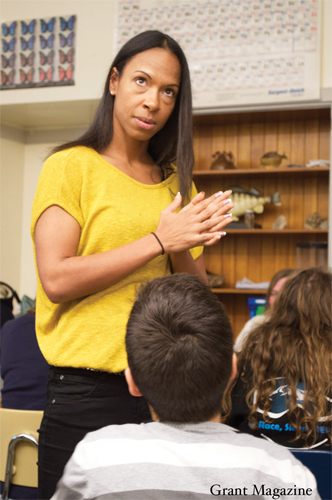
After a friend recommended that she try teaching, Pilgrim got her master’s degree at Oregon State University in science teaching.
She spent the first four years of her teaching career at Pleasant Hill High School near Eugene, a small town of almost 6,000 people. For Pilgrim, it was a great place to begin her career.
“She seemed really smart,” says Angela Banks, a 20-year-old University of Oregon student who had Pilgrim as a teacher at Pleasant Hill. “And she knew exactly what she was talking about.”
Despite being new at Pleasant Hill, Pilgrim was unencumbered with responsibilities and was asked to teach the ballroom dancing class, which, due to her limited experience in high school, allowed her to feel comfortable enough to do. Instead, she found herself in over her head.
“I kind of tried to bow out,” she says. “But they said, ‘Don’t worry, Ms. Pilgrim, we’ll teach you!’ And you know, when students really want to teach me something, and they’re really that passionate about what they do, I can’t say no.”
Pilgrim’s students did, in fact, teach her how to dance, and she began to love it. She took classes on her own and eventually became a certified instructor.
She hasn’t stopped dancing since.
Now, she spends four days a week at the Beaverton Ballroom, and normally about two hours each day to practice rumba, cha cha, Samba and jive. She competes every two months nationally, observed sometimes by judges from the TV shows “Dancing with the Stars” or “So You Think You Can Dance.”
“I just love dancing,” she says. “Everyone has their thing. This is mine. I find it really therapeutic. I get to be a totally different person on the floor – completely different from how I have to be as a teacher.”
Pilgrim, after four years at Pleasant Hill, felt she needed a change and earned a job as a biology and environmental science teacher at Central Catholic High School in Southeast Portland. But after just one year there, she caught word of an opening at Grant.
“While I enjoyed it there, I’m really partial to public education,” Pilgrim says. “When the opportunity rose to come to Grant, I jumped on it.”
She immediately sent in an application and was asked to come in for an interview shortly after. “It was one of those interviews where you have a sense of immediate fit,” she says. “For me, work environment is really important. Teaching is demanding. It’s a job of the heart.”
“I find it really therapeutic. I get to be a totally different person on the floor.” – Keri Pilgrim on dancing
Pilgrim was hired quickly and fell in love with the campus. Staff from all across the school came to help her out, donating equipment and fixing up her classroom. “The students are great, the staff is great, everyone’s been really open friendly to me,” she says. “It’s been really awesome so far.”
Her students feel she’s done a good job so far.
“She’s really straightforward with her stuff,” says James Bennett, a senior who takes Pilgrim’s anatomy and physiology class. “She really wants her students to understand what they’re learning.”
Pilgrim’s challenge is that she always wants to go to the next level; being great is one thing, but not being motivated to do it is another.
“I always want to feel like I have the potential to be better at what I’m doing,” she says.
“I want to be driven to be better. And this is one of those environments where I have that feeling. I’m really excited to teach. That’s what I’m passionate about now. I expect that I will feel that way for some time,” Pilgrim says.
Pilgrim’s parents are partly responsible for her tireless drive for excellence.
“My parents had high expectations for me, but they also made it clear that the decision as to what I wanted to do in my life was my own,” Pilgrim says. “They just expected me to be the best at whatever it was I chose to do.”
Pilgrim took the words of advice to heart. She was always near the top of her class, constantly ahead of what was expected from her classmates. Most importantly, she never shied away from a challenge. Pilgrim’s motto is built off of that: she doesn’t want to become complacent. Instead, she strives for greatness.
“I want to be excellent at what I do,” she says. “But if I’m not motivated, or I don’t have a good fit with the place that I work or the job that I’m doing, I have to look for something else.” ♦

